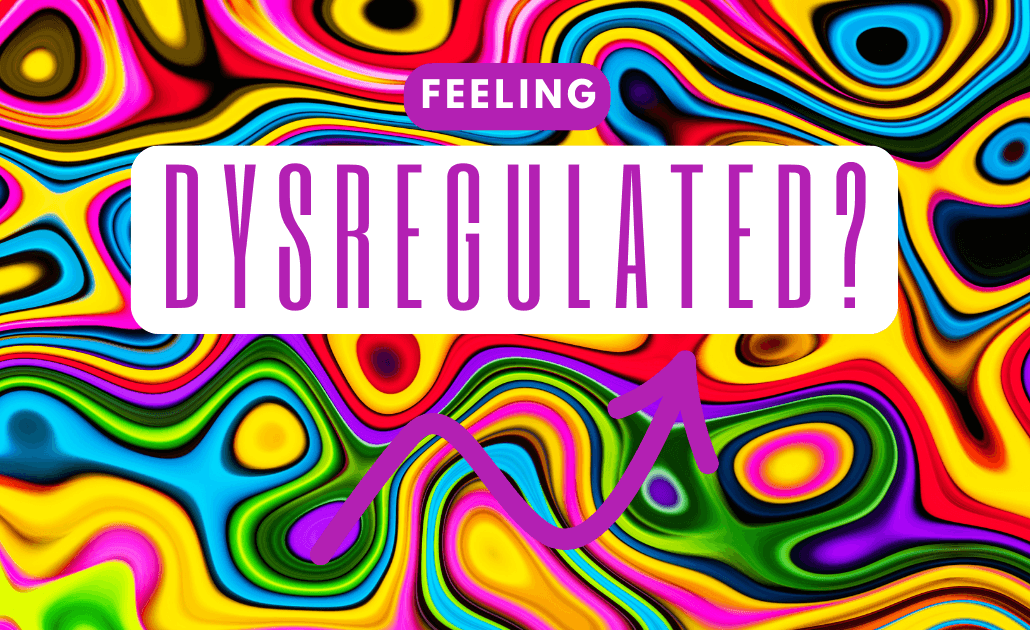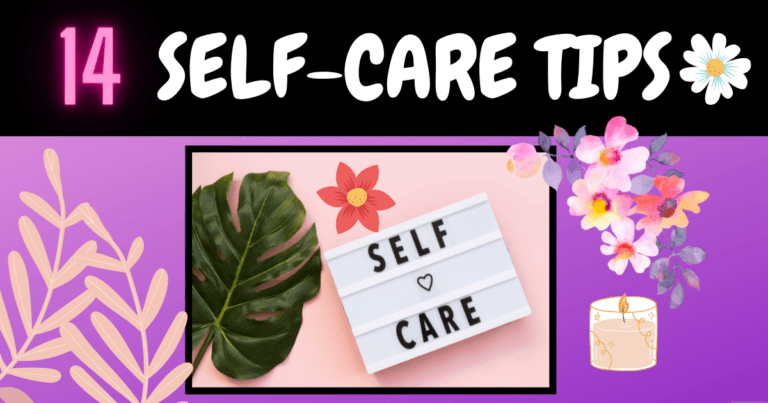Are you Dysregulated? 7 Ways to Detect and What to Do About It
Feeling Dysregulated?
Dysregulation refers to a state of imbalance or dysfunction in the nervous system’s response to stressors and stimuli. It can manifest in various physical, emotional, and cognitive symptoms.
When recovering from narcissistic abuse trauma, individuals may experience dysregulation as a result of the chronic stress and emotional turmoil they have endured.
Here are some common symptoms of dysregulation:
Table of Contents
Emotional Symptoms
- Intense mood swings
- Heightened anxiety or chronic worry
- Frequent feelings of irritability or anger
- Emotional numbness or detachment
- Intense fear or panic attacks
- Difficulty experiencing positive emotions or pleasure
Physical Symptoms
- Elevated heart rate or heart palpitations
- Rapid or shallow breathing
- Muscle tension, aches, or pain
- Gastrointestinal issues (e.g., stomachaches, digestive problems)
- Changes in appetite or sleep patterns
- Fatigue or exhaustion
Cognitive Symptoms
- Difficulty concentrating or focusing
- Memory problems or forgetfulness
- Racing thoughts or intrusive thoughts
- Impaired decision-making or problem-solving
- Hypervigilance or a sense of being constantly on edge
Behavioral Symptoms
- Impulsivity or risk-taking behavior
- Avoidance of triggering situations or reminders
- Social withdrawal or isolation
- Compulsive behaviors (e.g., overeating, overspending)
- Self-destructive behaviors (e.g., self-harm, substance abuse)
Relationship Symptoms
- Struggles with forming or maintaining relationships
- Trust issues or difficulty opening up to others
- Intense fear of rejection or abandonment
- Co-dependent tendencies or seeking validation from others
- Difficulty setting boundaries or asserting oneself
Sleep Disturbances
- Insomnia or difficulty falling asleep
- Nightmares or vivid dreams related to the trauma
- Restlessness during sleep or frequent waking up
HyPer and HypoArousal
- Hyperarousal: Feeling overly alert, anxious, and on edge; difficulty relaxing or calming down.
- Hypoarousal: Feeling emotionally numb, disconnected, or dissociated; slowed physical and mental responses.
It’s important to note that dysregulation can vary in intensity and may present differently from person to person. Individuals recovering from narcissistic abuse trauma might experience a combination of these symptoms as their nervous systems strive to find equilibrium.
20 Ways to Alleviate Symptoms of Dysregulation
Alleviating symptoms of dysregulation involves engaging in activities and practices that help restore balance to the nervous system and promote overall well-being.
When recovering from narcissistic abuse trauma or any form of stress, these strategies can be particularly beneficial. Here are some things you can do to alleviate symptoms of dysregulation:
Deep Breathing: Practice deep, diaphragmatic breathing to activate the body’s relaxation response and reduce stress. Inhale deeply through your nose, expanding your belly, and exhale slowly through your mouth.
Mindfulness and Grounding: Engage in mindfulness meditation or grounding techniques to stay present and connected with your body. Focus on your breath, the sensation of your feet on the ground, or the sounds around you.
Progressive Muscle Relaxation: Tense and then release different muscle groups in your body to release physical tension and induce relaxation.
Yoga and Tai Chi: Participate in gentle, flowing movements that promote relaxation, flexibility, and mind-body connection.
Aerobic Exercise: Engage in regular physical activity to release endorphins, reduce stress hormones, and improve overall mood.
Healthy Diet: Consume a balanced diet rich in whole foods, vegetables, fruits, lean proteins, and complex carbohydrates to support your body’s functioning.
Adequate Sleep: Prioritize sleep hygiene by maintaining a regular sleep schedule, creating a comfortable sleep environment, and practicing relaxation techniques before bed.
Limit Stimulants: Minimize caffeine, nicotine, and other stimulants that can exacerbate anxiety and disrupt sleep.
Creative Expression: Engage in creative activities like art, music, writing, or crafting to channel emotions and promote self-expression.
Journaling: Write about your thoughts, feelings, and experiences as a way to process and release pent-up emotions.
Social Support: Connect with friends, family, or support groups to share your feelings and receive validation.
Therapeutic Techniques: Consider therapies such as EMDR, cognitive-behavioral therapy (CBT), or somatic therapy to address trauma and regulate the nervous system.
Limit Triggers: Identify and reduce exposure to triggers that exacerbate symptoms, especially during the early stages of recovery.
Nature and Fresh Air: Spend time outdoors in natural settings to promote relaxation and reduce stress.
Massage or Bodywork: Receive therapeutic massages or engage in bodywork sessions to release physical tension and promote relaxation.
Aromatherapy: Use essential oils like lavender, chamomile, or bergamot to create a calming atmosphere.
Limit Media Exposure: Reduce exposure to distressing news or media content that can contribute to stress and anxiety.
Set Boundaries: Establish clear boundaries in your relationships and daily activities to protect your emotional well-being.
Practice Self-Compassion: Treat yourself with kindness and self-compassion, acknowledging your emotions without judgment.
Professional Support: Seek guidance from therapists or counselors experienced in trauma and nervous system regulation for tailored strategies and support.
Remember that everyone’s journey to healing is unique. It’s essential to experiment with different strategies and find what works best for you. Over time, consistent practice of these techniques can help you alleviate symptoms of dysregulation and promote a sense of balance and well-being.
dysregulated dysregulated dysregulated dysregulated dysregulated









